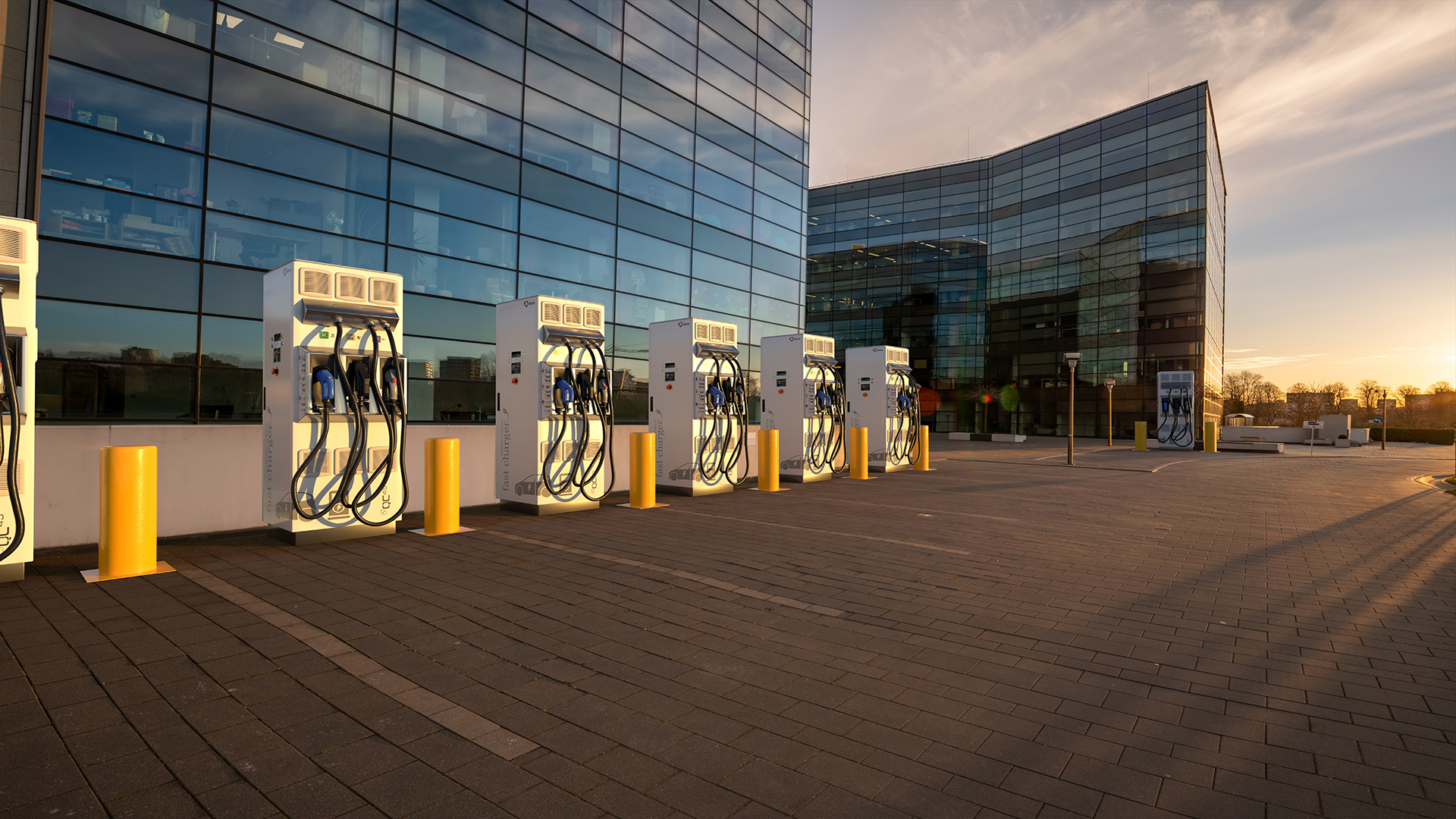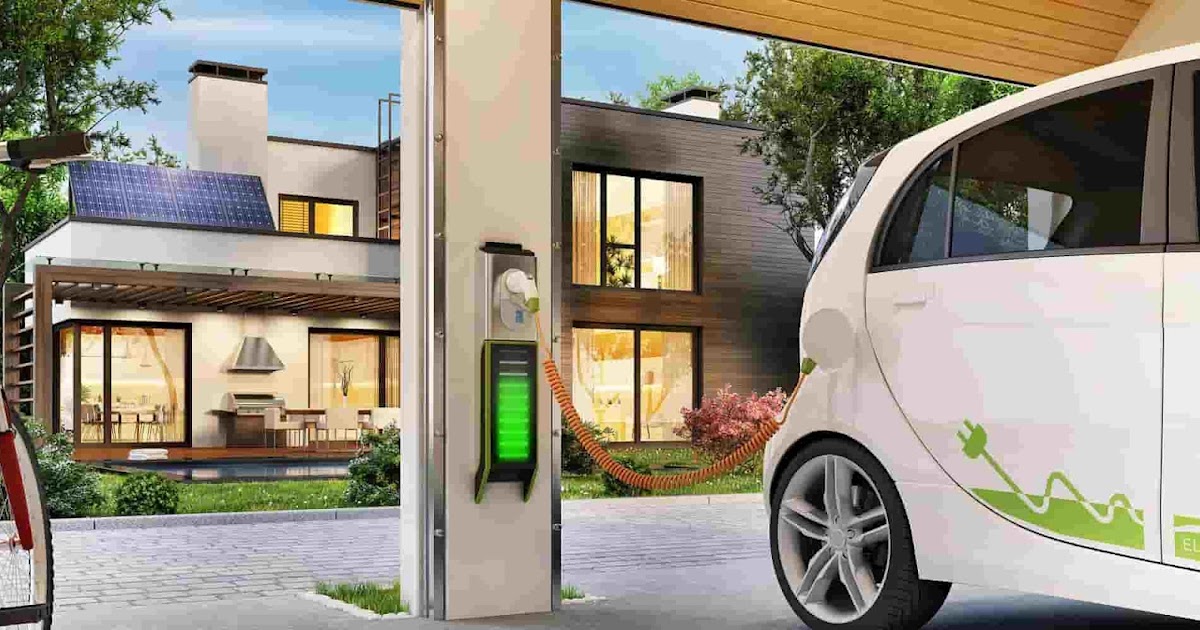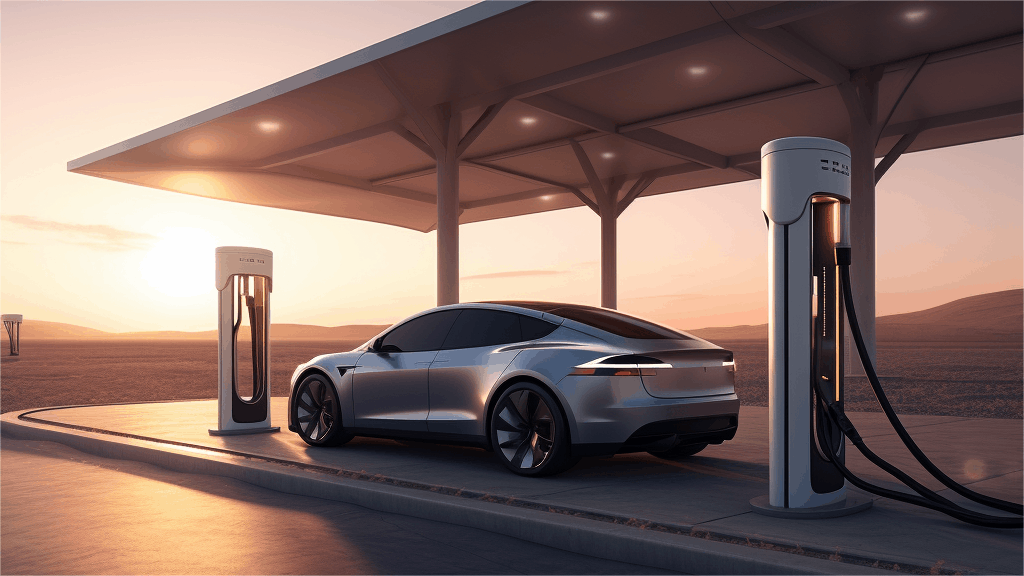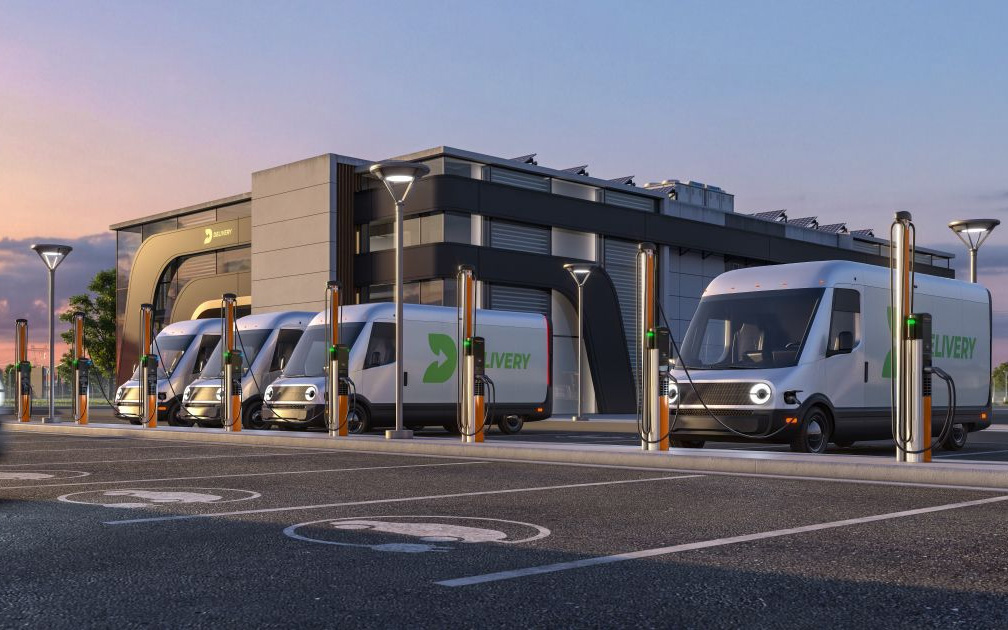Solar Meets EV charging: Energy Independence for the Modern Business
Power your electric vehicles with the clean, renewable energy of the sun.
As transportation evolves toward greener alternatives, integrating solar energy into your EV charging strategy helps reduce carbon emissions, stabilize energy costs, and showcase your commitment to sustainability. Whether you’re managing a workplace, fleet, or commercial property, solar-powered EV charging offers a future-forward solution that’s both environmentally responsible and economically smart.
🔋 Solar Batteries & The Clean Energy Surge
Solar Battery Solutions for Energy Independence
As clean energy continues to set new records, its momentum shows no signs of slowing. According to the Solar Energy Industries Association, solar photovoltaic (PV) systems accounted for nearly 50% of all new electricity-generating capacity. At the same time, electric vehicle (EV) adoption surged, even amidst a decline in overall auto sales. Despite global challenges, both industries have demonstrated remarkable resilience and sustained growth, driven by the growing demand for sustainable solutions.

☀️ The Synergy of Solar + EV Technology
Powering Electric Vehicles with Clean, Renewable Energy
The rapid adoption of both solar energy and electric vehicles isn’t a coincidence—it’s a perfect synergy. Solar power provides a clean, cost-effective way to fuel EVs while reducing dependency on the traditional grid. High-efficiency solar panels deliver maximum power output with minimal space requirements, making them ideal for residential rooftops, commercial buildings, and EV fleets.
For both homeowners and businesses, integrating solar energy with EV charging delivers long-term benefits:
-
Reduced electricity costs
-
Lower carbon emissions
-
Energy independence
-
Scalable infrastructure for growing EV demand
By generating your own clean energy, you take control of your utility expenses and ensure your electric vehicles are powered sustainably.

🔋 Solar Battery Integration: Reliable Power Around the Clock
AECSN helps homeowners and businesses maximize the value of solar with intelligent energy storage solutions.
When sunlight isn’t available—such as at night or during cloudy weather—a solar battery system ensures your property remains powered. This is especially critical for EV owners who depend on consistent charging availability.
Key benefits include:
-
Energy Storage for Off-Peak Use: Store excess solar energy during the day and use it when demand is high or solar generation is low.
-
Backup Power for Critical Needs: Keep essential systems running during outages, including lighting, appliances, and EV chargers.
-
Smart Energy Management: Intelligent battery software allows users to choose how and when stored energy is used for maximum efficiency.
Adding a battery to your solar system enhances energy independence, lowers reliance on the grid, and increases the overall return on your solar investment.

📊 Optimization for Businesses: Tailored EV Charging Solutions
AECSN offers expert consultations to help businesses plan and implement efficient EV charging infrastructure.
During each consultation, our team works closely with clients to assess their projected EV adoption rates on-site. This information allows us to accurately determine:
-
The optimal number and type of EV chargers needed
-
Whether additional solar panels should be installed
-
How to balance charging capacity with overall facility energy demands
By aligning your EV charging strategy with your energy goals, AECSN ensures that your investment is both scalable and cost-effective—supporting current needs while preparing your property for future growth.

⚙️ Cost Calculations for EV Charging
Unlike gas-powered vehicles that rely on miles per gallon (MPG), electric vehicle (EV) efficiency is measured in kilowatt-hours (kWh) per 100 miles. By combining this metric with local electricity rates and any additional fees, EV owners can accurately assess their charging costs. When paired with solar energy, the savings become even more significant—making EVs not only eco-friendly but also cost-effective over time.
🚗 Beyond Business Settings: Solar in Automotive Applications
The use of solar power to charge electric vehicles is expanding beyond corporate and commercial environments. Automotive dealerships, for example, are embracing solar to maintain EV fleets efficiently. Audi Seattle installed a 235 kW solar system that offsets roughly 50% of its energy consumption—allowing them to keep their high-performance EVs charged for test drives while significantly reducing utility costs. It’s a strategic investment in sustainability and operational savings.
🔮 Future Outlook: Scaling EV + Solar Integration
With automakers rapidly expanding their electric vehicle lineups, the demand for EV-ready infrastructure is growing. Solar energy presents a scalable, reliable, and cost-effective solution to meet this demand. As EV adoption rises, more businesses and institutions are turning to integrated solar + EV charging systems to future-proof their operations and enhance environmental responsibility.

⚡ Transition to Electric Vehicles
EVs are no longer the future—they’re the present. Nearly every major auto manufacturer now offers electric models, and global EV sales have nearly doubled in the last few years. Transitioning to EVs helps reduce fuel costs, shrink carbon footprints, and align with broader sustainability goals. AECSN can help your organization make the switch seamlessly with expert guidance and full-service implementation.
🏢 Workplace vs. Public Charging: Know the Difference
Charging at the workplace offers unbeatable convenience—especially when powered by rooftop solar, which provides 100% clean energy at minimal cost. Public or commercial charging stations can offer faster charging speeds but often come with higher costs, particularly if not solar-powered. AECSN recommends seeking or installing chargers that draw from renewable sources to maximize efficiency and minimize environmental impact.
⚡ Energy Consumption and Solar Panel Requirements
The average electric vehicle (EV) owner driving approximately 14,000 miles per year will require an estimated 4,666 kWh of additional electricity annually. This demand can typically be offset by installing around 3.1 kW of solar capacity—equivalent to roughly 8 to 12 solar panels—per vehicle, per year. By planning for this energy usage in advance, property owners can maintain cost-effective operations while supporting sustainable transportation.
🔄 Integration with Existing Solar Systems
For businesses that already have a solar energy system in place, expanding capacity or integrating battery storage can help meet the additional demand created by EV charging. Whether it’s through panel expansion or intelligent energy management, AECSN offers tailored solutions to help your infrastructure evolve alongside your energy needs.
🔋 Initial Solar Installation for EV Owners
If you’re considering adding EV charging stations to your property but don’t yet have solar, combining solar power with EV charging is a smart, future-ready strategy. Installing a solar system alongside your EV infrastructure helps reduce the long-term electricity costs associated with vehicle charging. Solar energy is not only efficient but also scalable, making it ideal for both residential and commercial properties preparing for increased EV adoption.
✅ Conclusion
Adding EV charging stations to your workplace or property enhances the experience for customers and employees, making EV ownership more convenient—and your property more valuable and forward-thinking.


